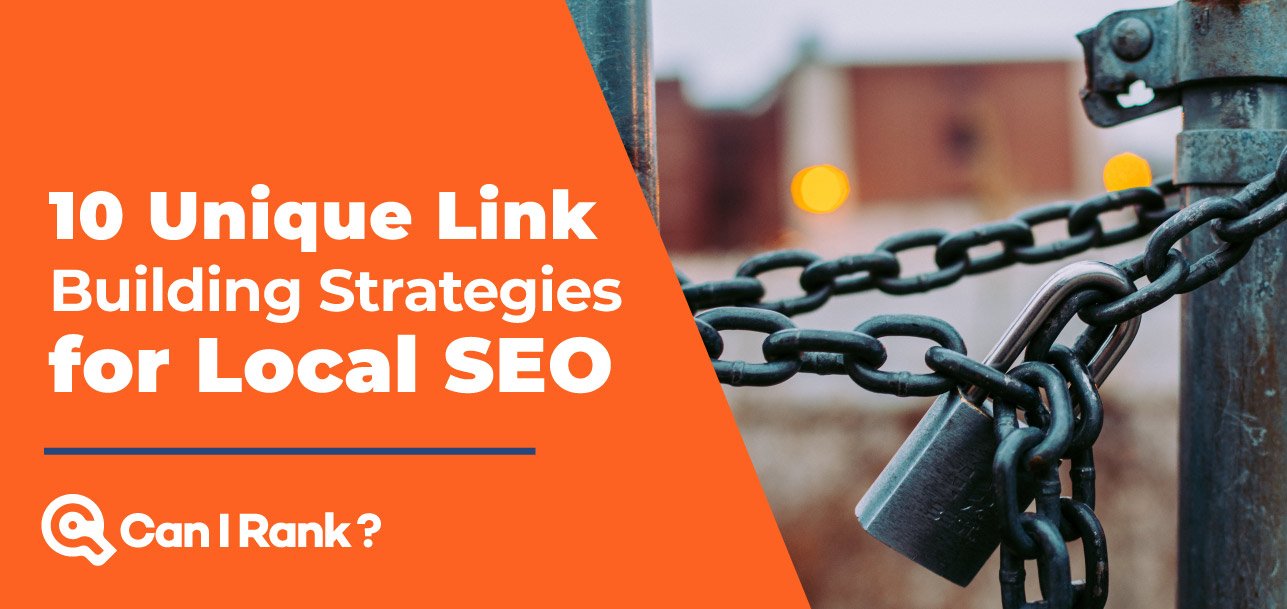Do you own a local business, and are you looking for more ways to increase your local rankings? We’ve put together a detailed list of strategies that you can start using to earn more quality backlinks!
Why should I care about local SEO?
According to the data, nearly half of all Google searches are looking for local information, and 97 percent of people learn more about a local company online than anywhere else. 92 percent of searchers will also pick businesses on the first page of local search results. If you want your business to be seen, implementing a strong local SEO strategy helps increase your website’s rankings and visibility to more potential customers.
With link building, while the end goal is to obtain a link, it’s important to remember that it’s no longer enough to simply do link sharing with colleagues. With many of these methods, it’s better to think of it as relationship building. When writing your pitches for outreach, personalize your emails and show how you can bring value to that person and/or their business.
1. Optimize your Google My Business listing
If there’s one thing about local SEO that still matters, it’s your Google My Business listing (along with other major directories and directories within your niche). Make sure your information is correct and consistent on all of your listings. Check your NAP (name, address, and phone number), your website URL, business hours, categories, and business descriptions. If you can upload photos, include your logo and any high-quality photos of your business along with the products or services you provide.
We recommend creating a document where you store all of your business information in one place. This becomes helpful when auditing your listings or hiring a consultant to do it for you. Once you have your Google My Business listing fully setup, you also gain access to more data that tells you how customers are finding your business.
Learn the behavior of people who are searching for your business via Google My Business Insights’ Search Queries, and amend your content strategy accordingly. @TheSocialDude shares some great examples 🏘️ 👇https://t.co/h8uGtHihNa pic.twitter.com/ZYpSsdcqP9
— BrightLocal (@bright_local) April 27, 2019
2. Create a local resource
This may take some creativity, but no matter your industry, local resources are a great way to build local relevance. You can either submit this resource to another website that focuses on information about your city or place it on your website and do some outreach.
If you’re a hotel, create a tourist-friendly guide on things to do around the town. If you do home repair, think of any natural disasters that are common in your town and create a guide on how people can best prepare for them. If you’re a staffing agency, compile a list of the top companies that provide employment in your city. From there, you can reach out to the businesses you’ve mentioned and see if they’ll link back to your content.
Not sure where to start with your content? The team at Compose.ly put together a detailed guide on local content marketing that walks you through the process of how you can create and refine your strategy.
3. Local promotion of content
This goes hand in hand with the previous method of creating a local resource. Whenever you create content, it’s important to run it through a content amplification process. Creating great local content is only the first step. The next step is to make sure it gets seen. Think about where your community hangs out online. Are there subreddits dedicated to your city? Forums? Well-known bloggers? Or social media groups? Create a list to track your outreach, and don’t forget to follow up!
4. Host a local event
Not only is this a great way to gain potential backlinks, but it also builds your brand authority both online and in-person. As a business owner, you’re the expert in your industry and you’ll be able to share that expertise with others in your community.
You can host different types of events depending on what’s most appropriate for your business: lunch and learns, business workshops, networking events, art shows, performances, charity drives, and much more. Once you’ve determined what event you’d like to host, create a page for it on your website. Then, gather a list of websites to target and let them know about your event. For a more in-depth guide on how to host local events, Moz has an entire step by step process.
Awesome local link building tactic. Go to meetup(dot)com, find an organisation that doesn’t have a place to hold their event, offer up your space for them to use. Have seen this work in practice — very smart idea via @GregGifford #smssyd19
— Brodie Clark (@brodieseo) May 7, 2019
5. Feature other local businesses
If there are businesses within your industry or related to your industry (who aren’t direct competitors), find a way to partner with one another. Provide an honest testimonial of their product on your website that they can link back to. Or consider co-hosting a local event together.
Another strategy is to come up with a list of “Top 10
6. Connect with local schools
If you’re looking to earn .edu backlinks while helping students with their education, reach out to local high schools and universities. If you want to offer a scholarship, clearly list out the requirements on your website page. Include the award amount, eligibility guidelines, the deadline, and other legal paperwork you may need. You can also host a writing contest where participants must write an essay surrounding a specific topic. This topic can even be related to your business’ industry where the winning essay will be published on your website.
Another creative method that we’ve seen involved a real estate agent who for every home she sold, donated a portion of it to her local high school. She had a donation tracker on her website, and the school would feature her whenever she hit milestones.
7. Secure local interviews
Every business and business owner has a story to tell. Whether it’s about the inspiration behind their product, the challenges they’ve faced while growing their team, or even announcing a new service; there’s something for everyone.
After you’ve refined your story and why someone should interview you, start reaching out. Depending on the feedback you get, you can adjust your pitches as you go. If you graduated from a local high school or university, see if they do alumni features. If there’s an appropriate category on your local news station’s website or your local newspaper’s website, find the right person to contact and ask about their selection process for interviews. This fashion boutique in Lubbock had their new Spring line of clothing featured at their local news station and offered viewers a discount code.
8. Offer local discounts
Do you have discounts for students, military, veterans, first responders, or teachers? You can go outside the box and offer discounts for other types of groups as well. Once you’ve created a page that details what your business offers, search online to find websites that list discounts in your city and asked to be included.
You can use this as an opportunity to create an additional resource page on your website that lists other local businesses who also offer discounts. Here’s an example of a lawyer in Los Angeles who created a listicle on senior discounts in Los Angeles.
9. Guest posting for local bloggers
Now more than ever, there are bloggers (or influencers) in nearly every town. Narrow your search down to those specifically in your community, and get to know the types of content they’re interested in. If your business is in a related industry, ask if they’re interested in having you write a guest post. Offer them a few different topics you can write about and how it would bring value to their readers. When writing the post, all you need to do is make sure to include a link back to your website!
If you’re looking for examples on how to accomplish this, here’s a guest post pitching guideline which includes 5 templates that can serve as inspiration for your next pitch.
10. Competitor backlink research
Last but not least, competitor backlink research is one of the easiest ways to find more link building strategies. You can use tools like Ahrefs, Majestic, or whatever you prefer. Just copy and paste some competitor websites and take a look at the types of links they’re earning. You’ll want to see if there are any specific pieces of content that people are linking to as well.
We suggest exporting the list and either cleaning it up on Excel or Google Sheets. It will take some time to sift through the lower quality links, but once you find quality link opportunities, highlight those and start strategizing ways on how you can obtain similar links. DIY SEO doesn’t need to be complex.
Have additional questions or suggestions for local SEO? Drop us a comment down below! Or visit this page to learn more tactics.





Leave A Comment